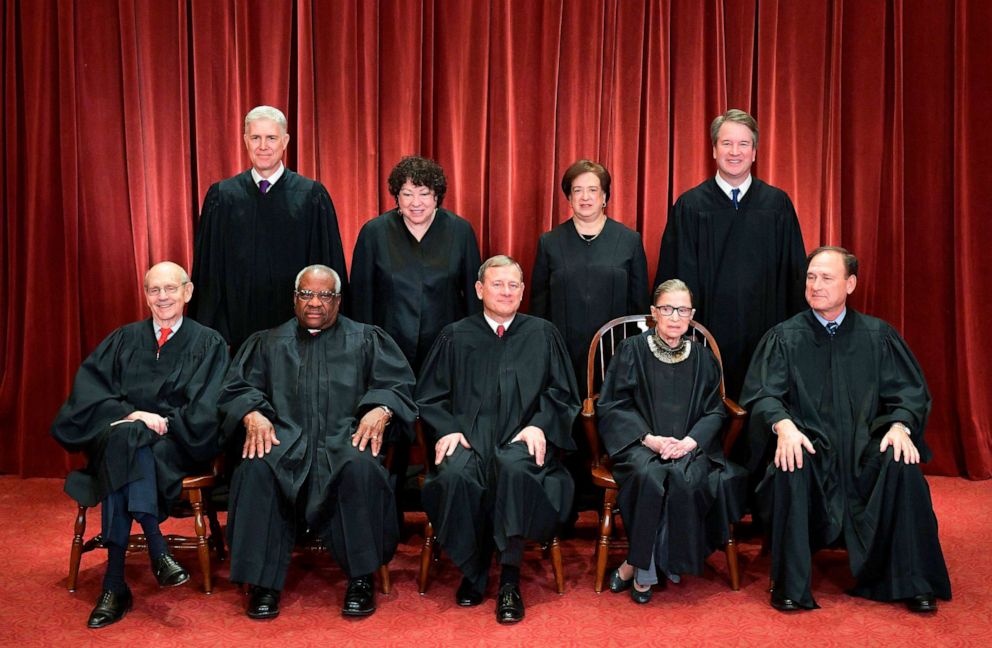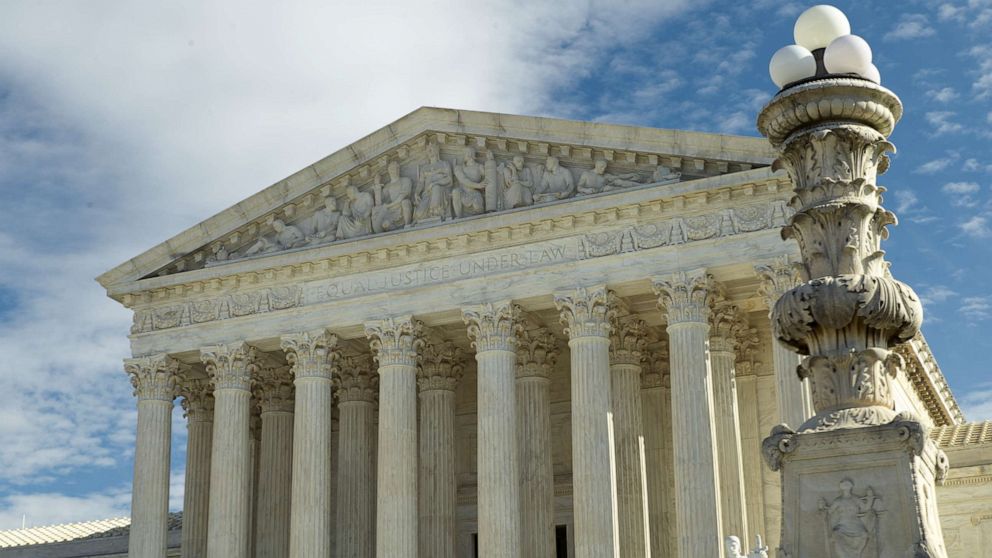Supreme Court makes history as justices livestream oral arguments

The U.S. Supreme Court for the first time Monday allowed millions of Americans to listen live to its proceedings as the nine justices convened to hear oral arguments by teleconference -- a historic milestone prompted by the coronavirus pandemic.
The landmark moment, in a case involving a dispute over a trademark for Booking.com, offered an extraordinary opportunity to hear the voices of the justices as they grappled with thorny legal issues in real time.
Justice Clarence Thomas, who famously refrains from speaking during in-person hearings, asked multiple questions of opposing attorneys -- his first in more than a year.
Chief Justice John Roberts appeared to be playing time-keeper, calling on fellow justices in order of seniority for their turn to ask questions, and then abruptly cutting off the round after roughly four minutes each.
At one point, Justice Sonia Sotomayor had to be called on twice for her turn, the long silent pause causing a brief delay in the proceeding. "I'm sorry, Chief," she said.
Tune into ABC at 1 p.m. ET and ABC News Live at 4 p.m. ET every weekday for special coverage of the novel coronavirus with the full ABC News team, including the latest news, context and analysis.
The phone connection for Justice Stephen Breyer experienced static interference later in the session, garbling part of his question to veteran Supreme Court litigator Lisa Blatt.

For the most part, the court's bold foray into remote conferencing technology went off without significant drama or disruption.
“Now that we know with certainty that live audio does not impair its functioning, there’s no reason for the court to return to its outmoded policy of week’s-end audio releases once we're past the pandemic," said Gabe Roth, executive director of Fix the Court, a nonpartisan advocacy group which has pushed for greater access and transparency at the Supreme Court.
The arguments, which usually last one hour, ran roughly 15 minutes longer than scheduled. Every justice had a chance to ask questions, but the session was devoid of the spirited back-and-forth from the bench that is a hallmark of in-person sessions.
The case at hand involves the question of whether businesses like Booking.com can trademark a generic word simply by adding ".com" to it. The government opposes the effort, warning of potential for monopolies. Companies like Booking.com insist competition will not be harmed but that a trademark would help fight "outright counterfeiting" and "spoofing."
The justices seemed divided on the question.
The Supreme Court is scheduled to livestream nine additional telephonic oral arguments in May, including President Trump's appeal of three subpoenas seeking his financial records.
Decisions are expected by the end of June.
What to know about coronavirus:
- How it started and how to protect yourself: coronavirus explained
- What to do if you have symptoms: coronavirus symptoms
- Tracking the spread in the US and Worldwide: coronavirus map




